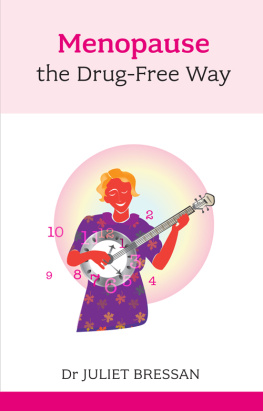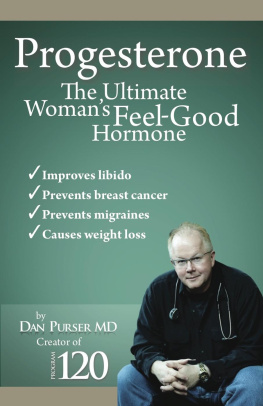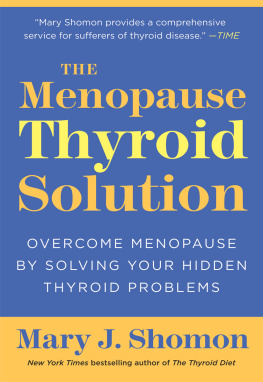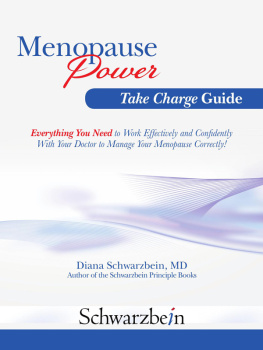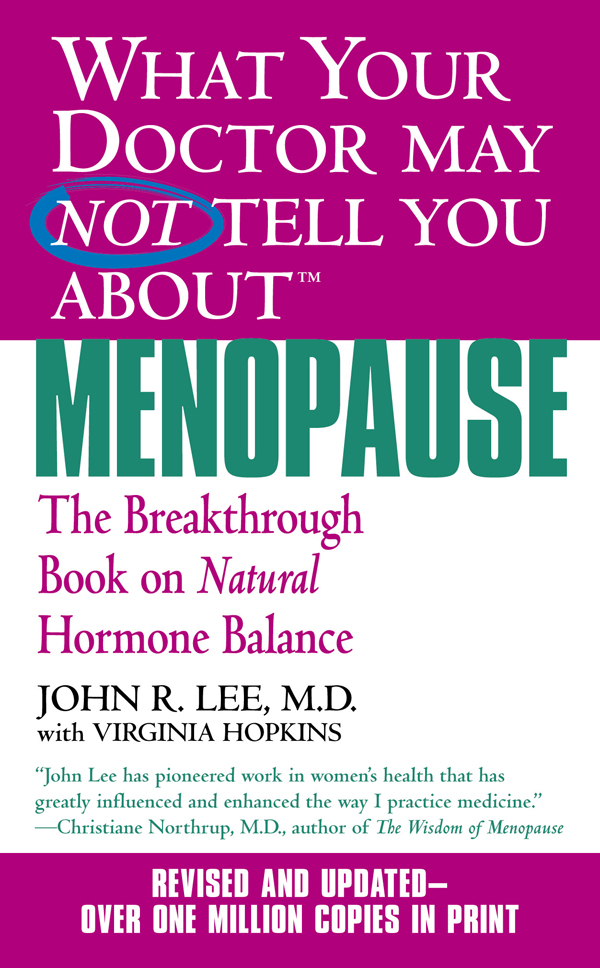P UBLISHERS N OTE: The information in this book can be a valuable addition to your doctors advice, but it is not intended to replace the services of trained health professionals. You are advised to consult with your health care professional with regard to matters relating to your health, and in particular symptoms that may require diagnosis or immediate attention.
Revised and Updated
Copyright 1996 by John R. Lee and Virginia Hopkins
Revised edition copyright 2004 by John R. Lee and Virginia Hopkins
All rights reserved. No part of this book may be reproduced in any form or by any electronic or mechanical means, including information storage and retrieval systems, without permission in writing from the publisher, except by a reviewer who may quote brief passages in a review.
Cover design by Diane Luger
Grand Central Publishing
Hachette Book Group
237 Park Avenue, New York, NY 10017
Visit our website at www.HachetteBookGroup.com
www.twitter.com/grandcentralpub
Grand Central Publishing is a division of Hachette Book Group, Inc.
The Grand Central Publishing name and logo is a trademark of Hachette Book Group, Inc.
The publisher is not responsible for websites (or their content) that are not owned by the publisher.
First eBook Edition: April 2011
ISBN: 978-0-759-51004-3
Buttressed by impressive data, the book presents an easy-to-follow program that enables women to stay energized, sexually vibrant, and unafflicted with female problems before, during, and far beyond menopause.
Sonoma County Independent
It covers not only menopause, but PMS, infertility, and osteoporosis. One of the best books describing the true fact about the female body and its functions.
Broward News
With a penetrating eye for truth and a courageous disregard for self-interest, John Lee makes clear sense out of the confusing area of womens hormone therapy. In the process he demonstrates the best remedy for our health care crisis: a physician whose first priority is the patients welfare.
Philip Incao, M.D., family practice physician
What Your Doctor May Not Tell You About Premenopause
What Your Doctor May Not Tell You About Breast Cancer
FOREWORD
I first heard of natural progesterone 25 years ago. Twenty-three years out of medical school and in my 20th year of family practice in Mill Valley, California, I had been invited to present a report on hypoglycemia to the Orthomolecular Medical Society in San Francisco. After giving my paper, I returned to the audience to listen to the next presentation, a talk by Ray Peat, Ph.D., of Oregon. His subject was natural progesterone, its many roles in human health, and a criticism of the medical profession for having ignored this important hormone in the care of womens health. As I recall, Dr. Peat argued that giving unopposed estrogen (estrogen replacement without progesterone) to women after menopause (when periods stop) was, in short, the wrong thing to be doing. The force of his argument, the scientific knowledge he laid out, and the references he provided were a clear challenge to the prevailing practice of most of us in the room. We had all been taught that menopause (when the ovaries stopped making their hormones) led to a variety of female complaints that represented estrogen deficiency. We had believed it obvious to treat such patients with estrogen. Yet here was a Ph.D. in biochemistry telling us we were wrong.
Taking the opportunity to snare Dr. Peat immediately after his talk, I spent the next hour or so with him exploring the subject further and getting his list of references. In the months that followed, I read as many of the papers he had listed as I could find. The evidence was strong that Dr. Peat was right: Giving estrogen alone just did not make good sense. In the process of this research, I came upon more and more evidence that not only was progesterone an important hormone at all adult ages for both men and women but also that unopposed estrogen put women at risk of undesirable, potentially lethal side effects.
Just a year or so before, it had become evident that women using estrogen were at five to six times greater risk of endometrial cancer (cancer of the uterus) than women not using estrogen. In effect, women and their doctors had to make a cruel choice between using estrogen to prevent osteoporosis and increase their risk of uterine cancer or not using it and risk an earlier hip fracture. Further, many of my women patients on estrogen had experienced water retention, headaches, and tender, swollen breasts, in addition to becoming heavier no matter how they dieted.
The turning point came for me when I was confronted with patients I had known for years who now had progressive osteoporosis and could not take estrogen because of a history of breast cancer, uterine cancer, diabetes, vascular disorders, gallbladder disease, obesity, or a host of other problems for which estrogen was either totally or partially contraindicated. During these years our community had access to dual photon bone absorptiometry (DPA), a test that accurately measures bone mineral density. Osteoporosis could now be measured. I remembered that Dr. Peat had told of an over-the-counter cream (Cielo, it was called then) that contained good amounts of easily absorbed natural progesterone and was available at local health food stores. Since it had been used in cosmetics as a skin moisturizer for years and I found no references indicating any safety problems, I considered the progesterone cream safe to use.
So, in late 1979, I began recommending progesterone cream to my osteoporotic patients who could not use estrogen. Using annual serial DPA bone density tests, I followed the bone condition of these patients. To my considerable surprise, the bone mineral density tests showed that my patients using progesterone cream showed significant increase (average 15 percent) whereas my patients on estrogen alone showed no increase but either remained stable or actually decreased. In addition, the progesterone patients told me of one condition after another that had improved since they started using the cream. Their backaches had gone away, they slept better, they had more energy, they could lose weight more easily, their skin was less dry and less wrinkled, and their libido, which had more or less evaporated over the years, was now revived. And among those with a history of cancer, none had developed any recurrence or late metastases.
The increase in bone mineral density was particularly remarkable. In researching the medical literature, I could find no study reporting any similar results. Even the vaunted estrogen has never been found to increase bone mineral density; it only slows the bone loss of osteoporosis. And that meager benefit occurs only in the five- to six-year period around menopause time, after which osteoporosis bone loss continues at a rate of about 1.5 percent a year whether one takes estrogen or not. Fractures prevented, as advertised by the estrogen promoters, are actually only fractures delayed. It therefore seemed obvious to me to add natural progesterone cream to my patients already using estrogen. When I did, the same bone benefits appeared.
There was a problem, however. On adding progesterone, some of the patients complained of increased estrogen side effects such as water retention, fuller breasts, and weight gain. These all resolved when the estrogen dosage was reduced. This was my introduction into the mysteries of hormone balance. Each of these two important hormones increases the effect of the other. In natures wisdom, the two hormones are meant to work together. Year after year, as I dealt with patient after patient, I learned more and more about the multiple ways in which these hormones affect the body. Things that once were mysterious became clear; things I thought I knew I discovered were more remarkable than I had dreamt. And, most wonderful of all, my treatment of hormonally related illnesses became based on understanding the underlying cause rather than on symptom-based prescriptions.


